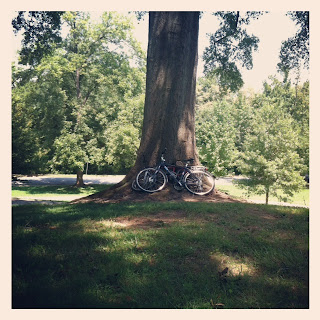Monday, August 13, 2012
Practicing Harmlessness
A monk recently spoke about the importance of joyous effort and the three obstacles to joyous effort: (1) laziness (2) busyness (3) self-defeating attitude/self-doubt. I thought a lot about these three obstacles and investigated how they are each at work in my own practice in both gross and subtle ways. The more I reflect on these obstacles, the more it seems to me that they, too, have roots and causes. As I looked deeper, I started to see that for my own path, the root obstacle which has been generating these three obstacles to joyous effort is purpose. Why do I practice? No really, why?
What purpose might I have that could really, truly, sustain the practice? I went through many things, even trying to get the answer boiled down to one key word, such as 'gratitude.' But nothing seemed to fit quite as perfectly as this: practicing harmlessness.
Why do I sit every day, training my mind? To be peaceful, to be free from suffering, to cultivate wisdom. Yes, all of those things! But they are not just for me, they are also for you. And you, and you, and you! If I practice only for me, I get all tangled up in self-centeredness, critical of my practice, with unreachable expectations and too much desire for attainment. When I practice in order to take the best kind of care of others that I can -- everything simply settles into place. And the peacefulness, liberation from suffering, and wisdom which the practice naturally generates will also naturally be the qualities in me which takes care of you.
I like this exchange. It is a firm foundation, and makes my effort joyous.
It also contributes in its own way to patience and compassion in the practice. Training the mind is tough work. And it takes a great deal of time. This path is a gradual one, and contrary to our basic intuition which would tell us as much, I find myself having to constantly be reminded. One day we might sit for practice and the mind just wont settle down; it thinks and thinks and thinks and thinks. It's important to immediately tell ourselves that that's okay. That's what the mind naturally does. It's been doing that for a long, long time. Much longer than you've been practicing. It's easy to be aggressive with ourselves in our practice when the mind is so restless and defiant. It's far better to wrap our heart's arms around it and say in a sweet, gentle voice, 'that's okay. just notice the breath again.' And we may have to notice the breath again a thousand times in our little 30 or 40 or 60 minute sit. It's all a part of the practice. Practicing harmlessness must first begin with ourselves. There's simply no escaping that fact.
So, my friends, may you have patience with yourself in order to have patience with others. And may you have peace and compassion within and towards yourself, so that you may have peace and compassion with and towards others.
Subscribe to:
Post Comments (Atom)


"to take the best kind of care of others that I can" - that is beautiful, and it strikes a deep chord in me.
ReplyDeleteI love this post, very useful and personal.